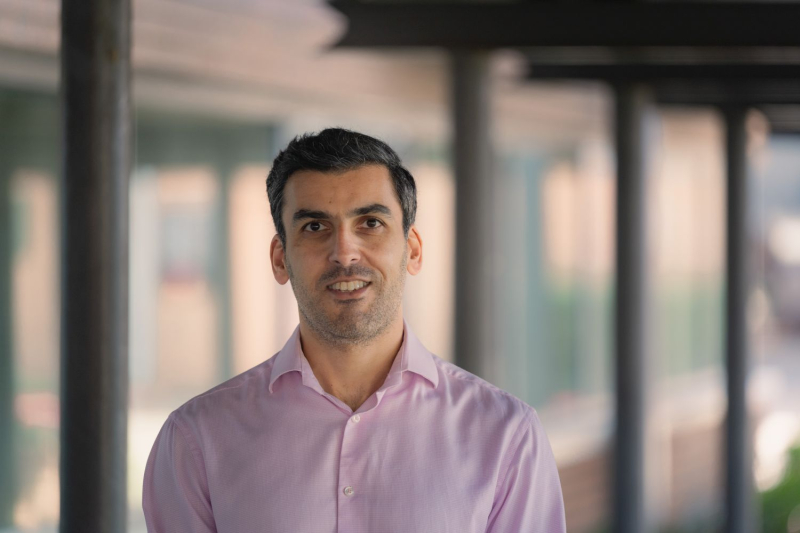Hadi Ghasemi, Cullen Associate Professor of Mechanical Engineering, has earned another significant, six-figure award to expand his research into cooling the high-temperature and hot-burning machines that now power modern life.
The Office of Naval Research awarded a $500,000 grant to Ghasemi for his proposal, “Physics-informed machine learning-driven hierarchical structures for thin-film cooling.”
Ghasemi said that this would be new research. His ongoing work on “icephobic” coatings has attracted multiple funding sources, including a $750,000 grant in March 2021 from the Air Force Research Laboratory. Elemental Coatings is the business entity for Ghasemi's commercial applications.
According to an abstract written by Ghasemi, he highlights the need for more efficient cooling structures for the advancement of power generation, electronics, photonics, battery modules for electrical vehicles and other applications.
“In this program, we plan to address this long-standing challenge by providing a new platform to discover high-performance micro/nano/molecular structures for thin-film evaporation and to understand the physics behind these high-performance structures,” he wrote. “Through a comprehensive physic-informed machine-learning (ML) platform, we aim to predict heat transfer characteristics of a material structure before fabrication and experimentation. The governing variables on heat flux including geometrical dimensions of the material structure and properties of the working fluid will be determined.”
He added, “Through optimization, we will find the optimal material structures for each working fluid. These structures will be fabricated and experimentally tested to validate this new platform. Furthermore, this platform enables us to reveal new fundamentals of liquid-vapor phase change at nano/molecular scales including the role of interface curvature on mass flux, wetting characteristic and momentum transport in confined geometries.”
The research will span about three years, from December 2022 through November 2025.
